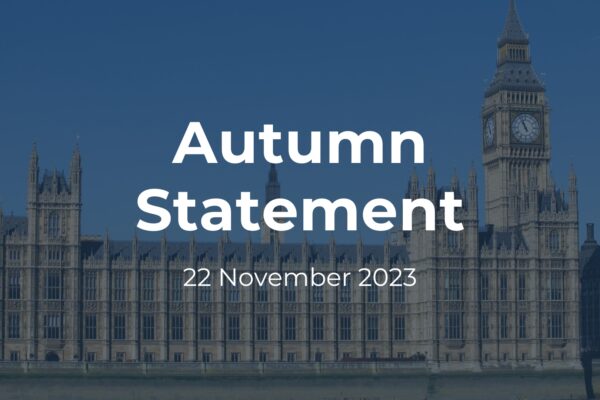There’s an old saying that only two things are certain in life: death and taxes. And sure enough, letting rental property comes with its own raft of tax implications. Sensible property investment is undoubtedly profitable, but you must factor in your costs, and one of those you cannot ignore is income tax.
Landlords will have to pay tax on their rental income in most cases. But while many new landlords pay income tax from their job directly via their employer’s payroll, forking out the tax on your property is altogether different.
It’s crucial, therefore, that you factor in the tax burden when you calculate the profitability of a new venture like a buy-to-let, and that you understand how to pay it.
Submitting a Self-Assessment Tax Return
Owning a rental property, finding a tenant and then collecting rent means you must declare the rent as income. The way to declare rental income is by submitting a self-assessment tax return to HMRC. Most people never have to go through this process because their employer submits all necessary income taxes (and National Insurance) on their behalf. But anyone with a rental income, with income from savings, investments and dividends, or foreign income must submit a self-assessment return.
While this can be a chore, it is essential. The good news is that by keeping careful records of expenses and income related to your property, the process is not complicated. Furthermore, technology has come on leaps and bounds, so you now submit your assessment online, and the final figure owed is calculated for you. Here’s how to submit a self-assessment.
Register with HMRC
If this is your first time, you must register on the Government website. You will then receive a Unique Taxpayer Reference (UTR).
Create a government gateway account
When you receive your UTR, you also get an activation code that will allow you to set up a Government Gateway Account. Once set up, this is how you can complete and submit your self-assessment and view previous entries.
Deadline for submission
Paperwork (even online paperwork) and paying taxes is never fun, but don’t leave your self-assessment submission to the last minute because there are fines for being late. Your tax returns are for tax years, not calendar years. So, for example, the 2019/20 tax year is from April 6, 2019, through to April 6, 2020. In this case, you must register for self-assessment before October 5 and submit it online by January 31, 2021, which is also the deadline for paying tax on rental income. You can still submit a paper-based self-assessment, but this must be done by October 31, 2020.
Filling in the return
The online process is quite intuitive, so don’t be daunted by the apparent complexity. Take it step-by-step, filling out all the figures required of you. This is much easier if you keep well organised records and receipts related to your rental property. You should also have records of your other income, perhaps from your main job, to include how much money you were paid and how much tax was submitted. Once completed and you have double-checked everything is in order, hit submit. You will then be required to pay any tax owed by the January 31 deadline.
What Income Tax Rate Will You Pay?
We’d love to say you pay a low rate of income tax on your rental income. The reality is HMRC bundles your rental income with all your other income to determine what tax rate you are liable to pay. That’s fine in the event that your rental income and all other forms of income fall below the tax-free threshold of £12,500 (2020/21). If you earn below this amount then you won’t pay a penny in tax.
But for most landlords, rental income is on top of other income, so the rate you pay for your rental depends on how much you earn elsewhere. At current (2020/21) levels, you pay:
- 0% on income up to £12,500
- 20% on income from £12,501 to £50,000 (basic rate)
- 40% on income from £50,001 to £150,000 (higher rate)
- 45% on income over £150,000 (additional rate)
Let’s give you a simplified example. You have a full-time salary of £30,000 a year and collect an annual rental income of £9,000. Your employer will pay your tax based on the £30,000, so you will be responsible for the £9,000. The combined pre-tax income is £39,000. This still keeps you in the 20% basic rate band. Therefore, you would be liable to pay 20% of the £9,000, or £1,800.
However, if your salary is £45,000, you will owe tax at 20% of £5,000 of your rent, since £45,000 plus £5,000 gets you to the higher rate band of £50,001 and over. You will then pay the higher rate of 40% on the £4,000 rent over the £50,000 tax threshold. That equates to £2,600 in tax owed on your £9,000 rental income.
But hold on! Before you start thinking you will owe too much, there are costs that you can declare on your self-assessment which will offset some of the tax you owe.
Deductible Costs for Landlord Self-Assessment Tax Returns
Unfortunately, landlords do not get as much help from the Government in terms of tax as they used to. There remain, however, many unavoidable costs relating to your rental property that you can declare to reduce your tax liability. Remember to keep records because even though you do not have to submit paper records with an online self-assessment, you will need to produce them in the highly unlikely event that you fall under investigation. Here are allowable expenses:
- General maintenance and repairs
- Council tax and utility bills (if you pay them rather than the tenant)
- Landlord building and contents insurance
- Property management fees (e.g. the fee you pay to OpenRent for advertising your property)
A significant change in recent years was the phasing out of mortgage interest payments as an allowable expense. Sadly, from the 2020/21 tax year, no part of your mortgage interest payment is deductible. HMRC reduced this allowance by 25% in 2017, 50% in 2018, 75% in 2019 and now it does not exist at all.
Another recent change is wear and tear. Until 2016, landlords could claim 10% of net rents against their tax bill. This is no longer the case, and landlords can only claim on the new Replacement Relief scheme, where only landlords running a property business can claim relief, and then only on specific replacement costs. Landlords not letting via a business have to use capital allowance rates, which are much less generous than the old 10% rule.
So, be sure to claim what you are still entitled to and keep on top of the rules that seem to change with every Government budget. Taking our earlier example, if you started with a £9,000 rental income, take off the allowable expenses from our bullet list. If we assume they came to £1,300, then you now owe tax on just £7,700, reducing your debt from £1,800 down to £1,550 if you are in the 20% tax bracket.
The Spare Room Allowance
If you are a live-in landlord in your own home, you might take advantage of the Rent a Room Scheme. This lets you earn rental income tax-free up to £7,500 a year (halved if you share the income with a partner).
When you complete your self-assessment, you can opt into the Rent a Room Scheme and claim the tax-free allowance. Under current rules, if you are on Universal credit, the income received under this scheme will not be included in any benefit calculation.
A Necessary Chore
Sorting out the taxes and finances of letting a property can seem overwhelming at first, but it is relatively straightforward once you get going. If you are paying tax on rental income, and you need to file a self-assessment, give yourself plenty of time to collect all your information and make the submission before the deadline.




Start the discussion at community.openrent.co.uk